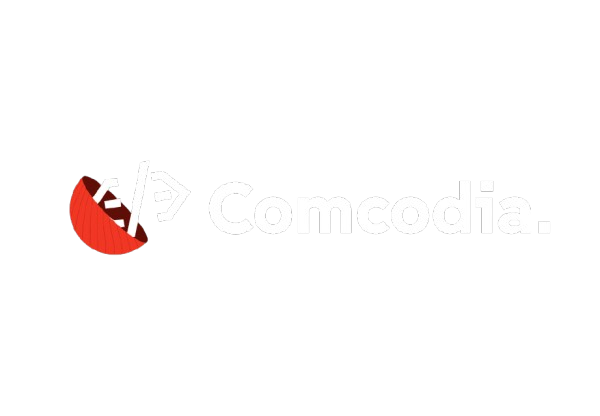The real estate industry moves fast. From following up on leads to closing deals and marketing listings, agents have to juggle countless tasks every day. To stay competitive and organized, it’s not enough to rely on memory or spreadsheets. That’s where CRM software comes into the picture.
If you’ve been asking yourself what is CRM software in real estate, this guide will answer everything you need to know. We’ll break down how CRM software works in the real estate industry, why it matters, what features to look for, and how it can transform your business whether you’re a solo agent, part of a team, or managing a brokerage.
what is CRM software in real estate
CRM stands for Customer Relationship Management. When we talk about what is CRM software in real estate, we’re referring to specialized software that helps agents and brokers manage interactions with leads, clients, and prospects. It’s a digital platform that keeps track of everything including contacts, property listings, communications, appointments, marketing campaigns, transactions, and more.
The goal of using CRM software in real estate is to keep everything centralized, efficient, and organized. Whether you’re meeting new prospects at open houses, following up on online inquiries, or coordinating showings, CRM software makes it easier to manage relationships and move deals forward.
Most real estate CRMs are cloud-based, meaning you can access your business data from anywhere including your office, home, or while out with a client. These tools are built to suit the needs of the industry: lead nurturing, property matching, transaction timelines, and team collaboration.
Why Real Estate Professionals Need CRM Software
When evaluating what is CRM software in real estate, it’s important to understand the problems it solves. Here’s why it’s essential:
1. Centralized Information
Without a CRM, client data is often scattered including a phone number saved in your phone, an email buried in your inbox, and notes scribbled in a planner. CRM software pulls all that into one place. Every contact, conversation, and document is easily accessible.
2. Streamlined Lead Management
CRM tools allow you to capture and manage leads from multiple sources. Whether it’s a website form, social media DM, referral, or real estate portal like Zillow, your CRM collects and organizes these leads automatically.
3. Better Follow-Ups
Agents often lose potential deals simply by forgetting to follow up. CRM software offers automated reminders, scheduled emails, and activity tracking, so no one falls through the cracks.
4. Transaction Oversight
With so many steps in a real estate deal including offers, inspections, paperwork, deadlines etc it’s easy for things to slip. CRM software lets you manage transaction timelines, upload contracts, and assign tasks, all tied to specific deals.
5. Improved Marketing
Want to send property updates or run email campaigns? CRM tools let you do that too. With automation, you can segment your list and deliver targeted content based on client interests or behavior.
How CRM Software Works in Real Estate
When you ask what is CRM software in real estate, think of it as your digital assistant. Here’s how it supports your daily operations:

Contact Management
Store everything about your clients including name, phone, email, preferred location, budget, timeline, past communication and see it all at a glance. Whether you met someone six months ago or just got off the phone with a new lead, you’ll always know where things stand.
Lead Tracking
Your CRM captures leads from multiple channels: your website, Facebook, paid ads, email campaigns, and even third-party platforms. It tags, scores, and sorts them based on criteria you choose like location or buying readiness.
Pipeline Management
A visual sales pipeline lets you see every client’s progress from first contact to closing. You can customize stages (e.g., New Lead, Contacted, Showing Scheduled, Offer Made, Closed) and drag leads between them.
Marketing Automation
With marketing features built in, you can run drip campaigns, schedule emails, and send property alerts. You can even automate responses to inquiries and track who opens your messages.
Task and Calendar Integration
Assign follow-ups, schedule calls, and link appointments to your CRM calendar. You can set up alerts so you’re always on top of your to-dos.
Team Collaboration
Working with a team? CRM tools help you assign leads to different agents, share notes, and track team performance. Everyone stays in sync, and accountability is crystal clear.
What Makes CRM Software in Real Estate Different?
A generic CRM tool might work for simple contact tracking. But what is CRM software in real estate when it’s done right? It’s a system built specifically for real estate professionals from how leads are captured to how deals are tracked.
Real estate CRMs often come with:
- MLS integration
- Property matching features
- Open house tracking
- Buyer/seller timelines
- Pre-built real estate workflows
- Mobile apps for in-the-field updates
These industry-specific features are what set real estate CRM tools apart.
What to Look for in a Real Estate CRM
If you’re trying to decide which CRM is best for you, here are the key features to consider:
1. Ease of Use
A CRM should be intuitive. You shouldn’t need weeks of training. Look for drag-and-drop dashboards, simple data entry, and fast navigation.
2. Lead Capture and Integration
Choose a CRM that integrates with your lead sources. Whether it’s Zillow, Trulia, Facebook ads, or your website form, you want leads to enter your system automatically.
3. Automation
From email follow-ups to text alerts and appointment reminders, automation saves time and improves consistency.
4. Mobile Access
Your CRM should work just as well on your phone or tablet as it does on your laptop. This is essential for agents who are constantly on the move.
5. Reporting and Analytics
A good CRM provides real-time data about your performance: how many leads you’ve contacted, how many are active, which campaigns work best, and how close you are to reaching your sales goals.
6. Security and Compliance
Real estate deals involve sensitive information. Make sure your CRM offers data encryption, user permissions, and secure backups.
Benefits of Using Real Estate CRM Software

Still wondering what is CRM software in real estate and how it benefits your business? Here’s what you can expect when you implement one:
- More Deals Closed: Faster follow-ups and better pipeline management mean more conversions.
- Time Saved: Automations and templates cut down manual work.
- Better Client Experience: Personalized service makes clients feel remembered and valued.
- Stronger Marketing: Run smarter campaigns with built-in analytics.
- Team Efficiency: Everyone is on the same page, reducing mistakes and miscommunication.
Who Should Use a Real Estate CRM?
You don’t have to be running a massive brokerage to benefit from CRM software. In fact, agents at every level can benefit:
- Solo Agents: Use CRM to stay organized and look more professional.
- Teams: Keep communication and collaboration smooth with shared access.
- Brokers: Get insights into team performance, lead sources, and conversion rates.
No matter your role, understanding what is CRM software in real estate and how to leverage it can give you a competitive edge.
Choosing the Right Real Estate CRM Software
Picking the right CRM depends on your specific needs. Ask yourself:
- Do you need MLS or IDX integration?
- Are you more focused on marketing or deal tracking?
- Do you manage rentals, commercial real estate, or residential?
- Do you work alone or with a team?
- What’s your budget?
Here are a few top real estate CRM options to explore:
- HubSpot: Free CRM with excellent marketing tools.
- Follow Up Boss: Built for real estate with strong lead management.
- Wise Agent: Affordable and includes transaction management.
- Zoho CRM: Great for teams with customizable workflows.
- LionDesk: Offers video email and text features for client engagement.
Real-Life Scenarios: CRM in Action
To truly understand what is CRM software in real estate, let’s look at how it plays out day-to-day:
Scenario 1: New Buyer Lead from Facebook
A user fills out a form for a 3-bedroom home in a specific neighborhood. Your CRM instantly captures their info, tags them as a warm lead, and sends them an email with available listings. You’re notified to follow up the next day with a personal call.
Scenario 2: Managing Transactions
You’re working with a seller who just accepted an offer. Your CRM reminds you to schedule an inspection, send the contract to the attorney, and follow up with the buyer’s agent all without missing a step.
Scenario 3: Team Collaboration
An agent on your team is on vacation. You quickly open the CRM, check their notes, and follow up with their lead to avoid losing momentum. The client never knows there was a handoff.
Final Thoughts: Why You Shouldn’t Wait
Real estate is a relationship-driven business. But relationships are built on consistency, responsiveness, and organization all of which a CRM can help deliver.
If you’ve been wondering what is CRM software in real estate and whether it’s worth the investment, the answer is clear. It’s not just a tool, it’s a foundation for scaling your business.
A real estate CRM helps you:
- Keep track of leads and clients
- Automate follow-ups and marketing
- Stay organized across all transactions
- Gain insight into your performance
- Improve the client experience
- Close more deals, with less stress
In an industry where every interaction can make or break a sale, CRM software gives you the edge. Start building smarter systems now so you can spend more time doing what matters most, serving your clients and growing your business.
Frequently Asked Questions
What are the three types of CRM software?
CRM software typically falls into three main categories: operational, analytical, and collaborative.
- Operational CRM helps streamline and automate day-to-day tasks like managing leads, scheduling follow-ups, and running marketing campaigns.
- Analytical CRM focuses on data. It gives you insights into customer behavior, conversion rates, and sales trends to help you make smarter decisions.
- Collaborative CRM helps different departments within a business, such as sales, marketing, and customer service, work together by sharing customer information.
Each type serves a different purpose. Many modern CRM platforms combine features from all three to offer a well-rounded solution.
Who can use CRM in real estate?
CRM software in real estate is a valuable tool for anyone in the industry. Solo agents, small teams, and large brokerages can all use it to stay organized, follow up consistently, and close deals more efficiently.
What is CRM software in real estate?
Real estate CRM software is a tool built specifically for real estate professionals to manage client relationships and property transactions. It helps agents and brokers organize contacts, track deals, schedule appointments, send marketing emails, and stay on top of every step in the sales process. It acts like a digital assistant that keeps your entire business running smoothly from one central platform.
What is CRM software used for?
CRM software is used to manage and improve relationships with customers. It stores contact details, tracks interactions, schedules tasks, and helps businesses stay in touch with leads and clients. A good CRM system also improves customer service, increases sales efficiency, and keeps your entire team aligned when it comes to managing customers and prospects.


